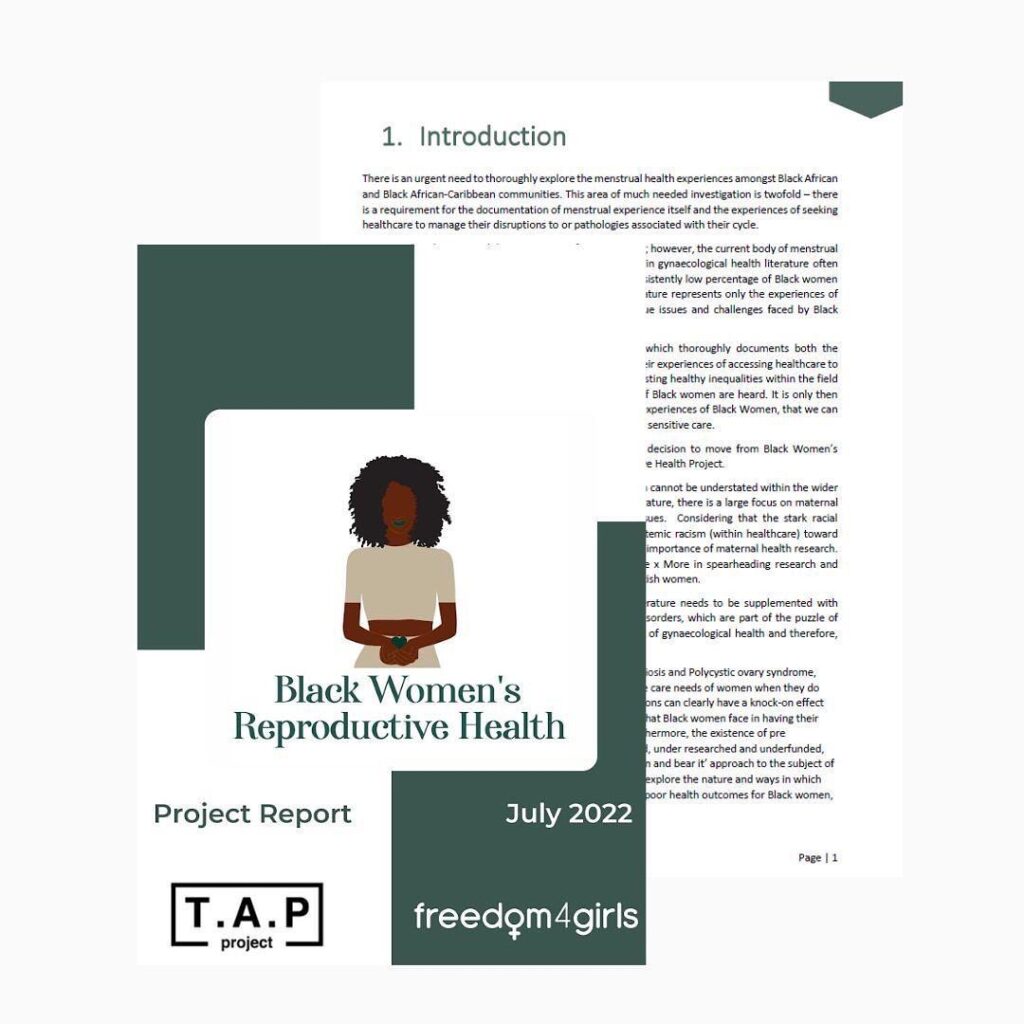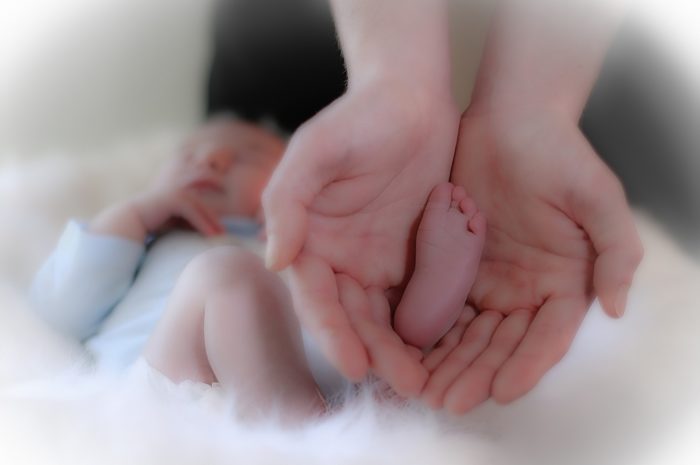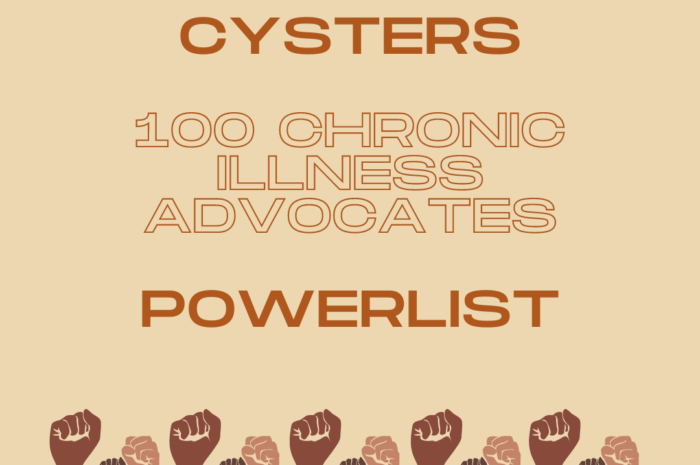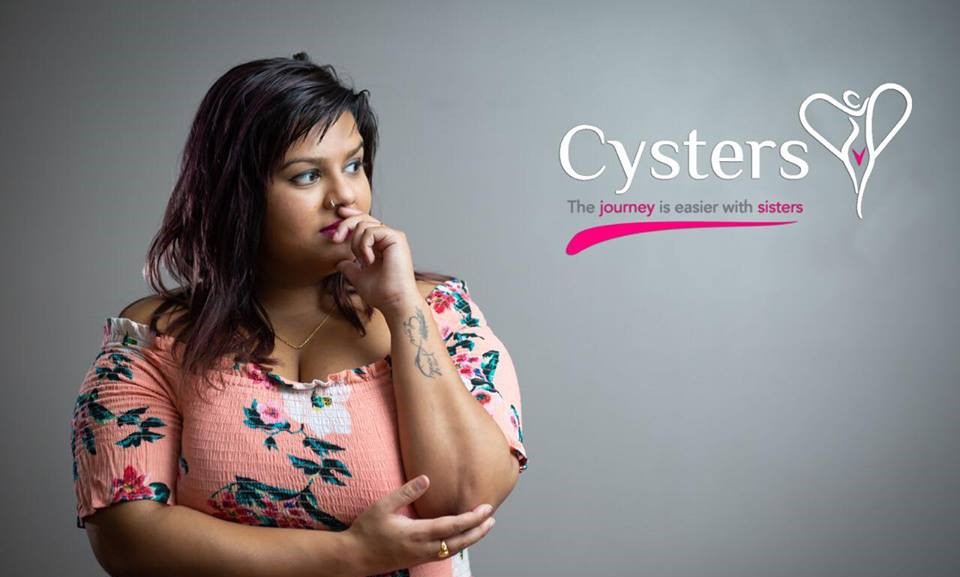The project started in June 2020 whilst working on a campaign to remove period poverty with Freedom4Girls. But after George Floyd’s murder and the spark into the Black Lives Matter movement, as a team working for an organisation representing African and Caribbean women*, Tora and the team wanted to act, so the Black Women’s Menstrual Health project, was born.
Since October 2020, over 165 Black British women have spoken up about their periods, their general reproductive health needs and how seeking healthcare support has made this better, the same or worse. This report analyses their words and considered how misogyny and racism have impacted their experiences.
Some of the most important findings and main discussion areas have been
- There is general stigma associated with periods such that any pain experienced is considered ‘normal.’
- Combined with this, there is a lack of education associated with periods, general menstrual and reproductive health conditions and how to manage them;
And finally, yet unsurprisingly, it was noted when black women reported their experiences of pain to healthcare professionals, they were dismissed or they didn’t get the support they were hoping for
The second biggest reporting was on the concerns around missed work as a result of pain. 91% of survey respondents who had reported experiencing chronic pelvic pain, confirmed they had missed work due to chronic pelvic pain. Comparing this data to external literature, it is noted that Black British women experienced gynaecological pain at a significantly higher rate than other women
Third, the report shows us that there was poor access to care and support for menstrual and reproductive health in Black British women. 61% of beneficiaries stated they had gone to their GP for support, and 92% said they had faced barriers when attempting to access care and support. Some of the barriers were things like an uncertainty of what services were available, a lack of education about menstrual health conditions, and interestingly, 37% faced a lack of representation. 33% reported having had poor previous experiences.
Finally, the report shows us that there was a lack of adequate menstrual and reproductive health education, which acted as another issue in their access to good menstrual-reproductive healthcare. 90% of the women we spoke to said they wanted more education to better understand their cycles and their bodies.
As expected, women’s reproductive and menstrual health as a societal topic, remains stigmatised and shamed; it remains underfunded and under resourced, because of the patriarchal world we live in; and, Black women, owing to systemic racism and unconscious / conscious bias, suffer the most because of that.
The project aims when we set out in June 2020, were to:
- Create this research piece to act as evidence for why change at policy and decision maker level is necessary.
- Empower and advocate for the needs and experiences of Black British and Black-mixed British women via an advocacy and educational resource that seeks to build confidence and inform our Black queens when seeking healthcare support.
And finally, the team wanted to work directly with healthcare providers to educate them the communities lived experience- as mentioned, ‘BAME’ women have different experiences and are treated differently- healthcare providers need to implement this within their policies on inclusion and representation.




